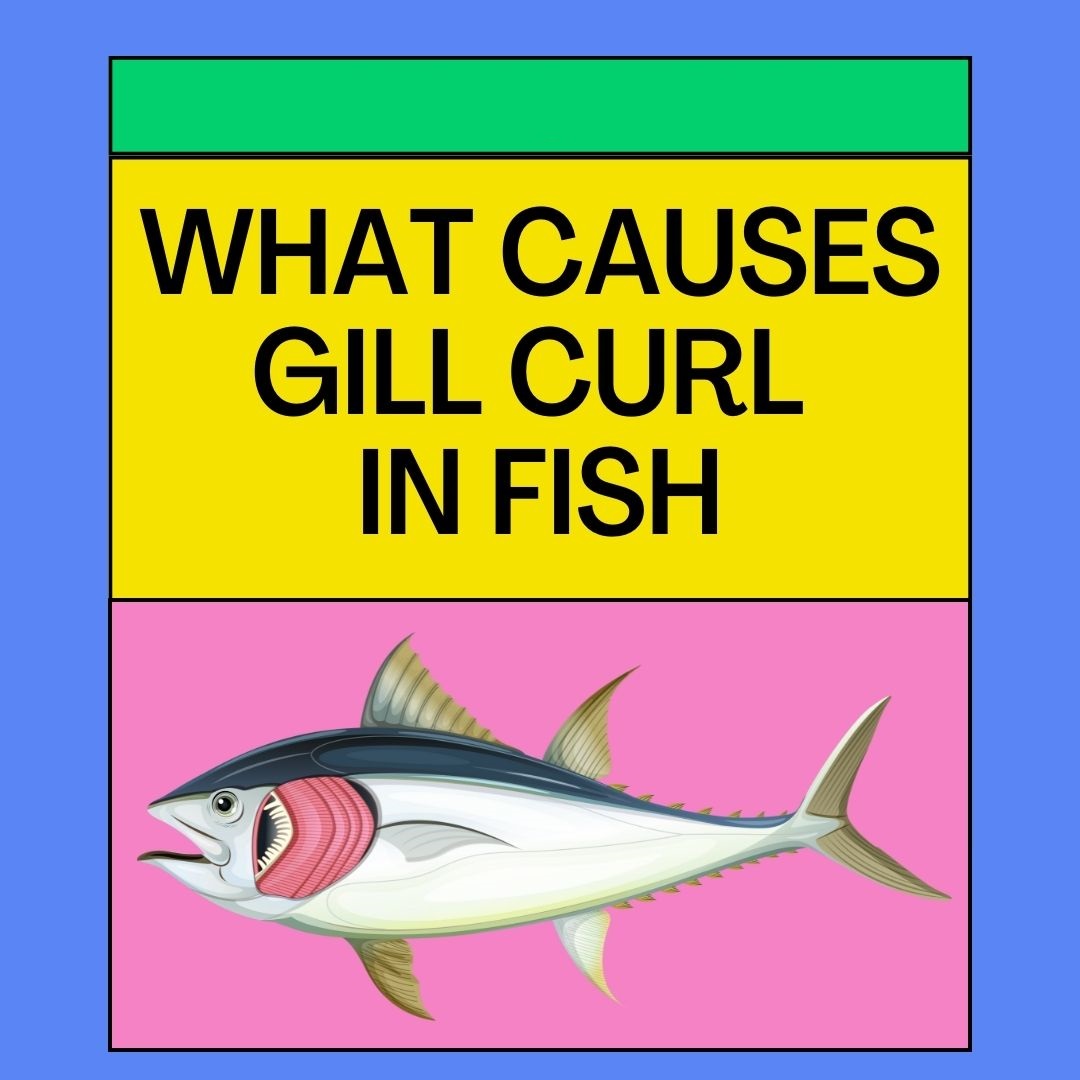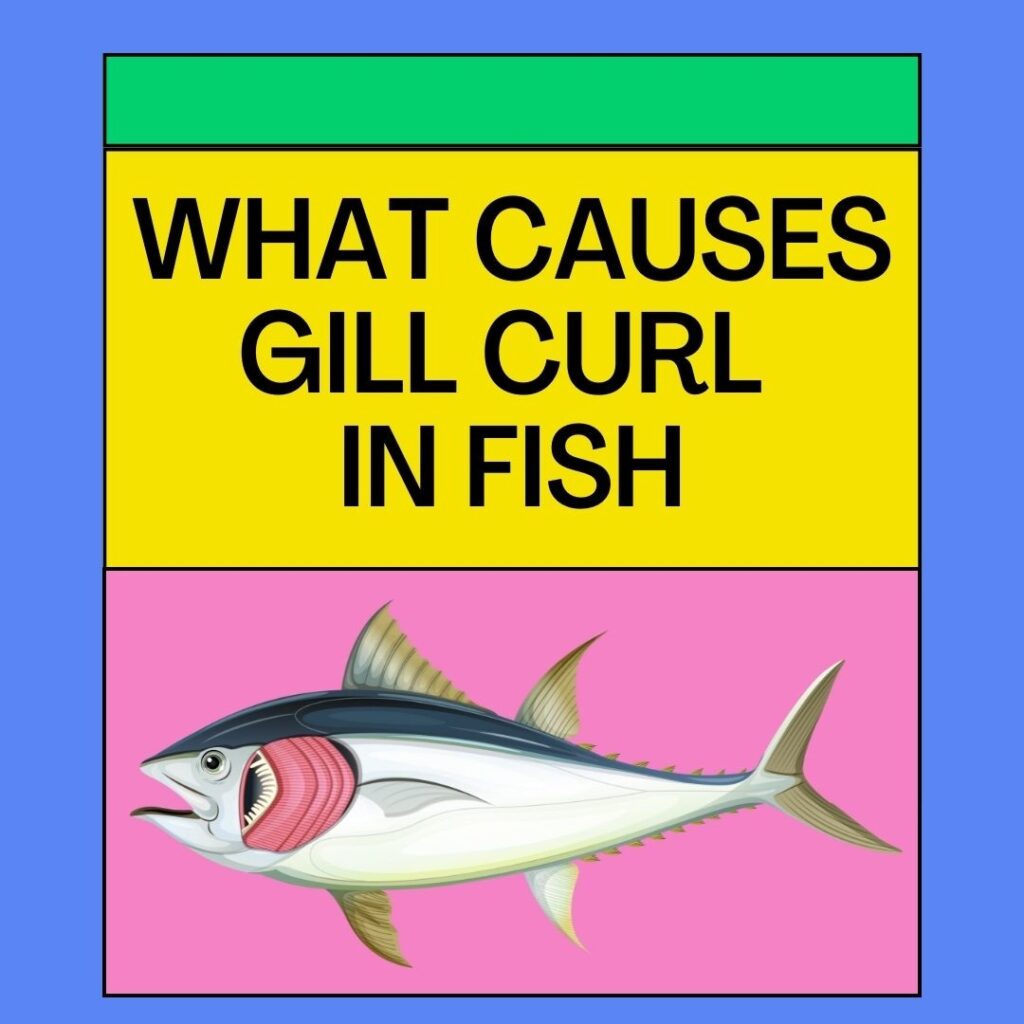
Gill curl is a common problem for fishers. Well fixing them is not a big deal too.
So, what causes gill curl? What causes Gill to curl in arowana? How do you stop Gill’s curls with and without medication?
A very common reason for causing a gill curl is if the wheel takes too much weight. It can also happen if you don’t mount the hooks correctly. A parasite can also cause a lot of problems. You should also care about tight braids. Or you might just be fishing too close to the bottom.
Whatever the reason is, here I will tell you all about the reasons and solutions.
So what are you waiting for? Let’s get started!
11 Ways to Fix Gill Curls
Here are some reasons that cause gill curls in fishing. I will also tell you the details about how these problems are caused. And how to fix them.

Reason 1: Too Much Weight on the Hooks
This happens because there is too much weight on the hooks. For example, if your hooks have salted fish. Or you see the fish bite hard on some of them. Those fish will find their way to your hook. And they will stay there while they are being pulled by the line.
Solution
Remove the weight on the hooks by removing the hooks or by cutting them. You have to remove the weight on the hooks. Or those fish will follow them back to you.
Reason 2: The Wrong Mounting of the Hooks
This happens when you do not mount your hooks properly. The reasons are many. But in general, this happens if you mount your hook too close to your lure. Then it will not be seen by the fish in the water. And it will cause an error about seeing.
Solution
Mount your hook with a little space between it and your lure. If you don’t do this, that space will lead to a loss of interest in fish. It’s because they can’t see it properly. Also, move your hooks up and down. Do this until they are just visible from under the surface when casting.
Reason 3: Parasites that Live in the Gill
These are very common and it happens a lot to bait fisherman. Those parasites are small worms that live inside the gills of the fish. When they bite on a hook, they will stick there until after they die. Because their body is still attached to your hooks.
Solution
To help this problem you have to be cautious when you cut off your fish. Make sure not to leave any chunks of its gill on your hooks. Because it will attract other fish and put them on your line by mistake. When you cast your baits again.
Reason 4: Tight Braids
The third reason is because of the tight braids. Whether in snood or on the main line. Tight braids can put a lot of pressure on the hooks. And when you cast, the hooks will split open because of that pressure.
Solution
Loosen your braids to make sure your line won’t be tight.
Reason 5: Knot Tied on Reel
Sometimes, people forget to tie the knots on their reel. And when they cast it again with force, their knots get tied on the spool. And thus it puts a lot of pressure on their hooks when they pull them out.
Solution
Make sure you tie your knots properly before the cast. It’s so that it won’t get caught up with other lines. Making the loop is also important. Improper loops can cause crotch breaks.
Reason 6: Fishing in Turbulent Conditions
Most of the time, we will have bad weather when we go fishing. And that can make the water choppy. That turbulence will cause your line to be tight. As well as put more pressure on your hooks.
Solution
In such conditions, you should use a rope rather than go fishing by yourself. If you can’t find one, just tie a knot in your line. And let it drag after the cast.
Reason 7: Dragging Bait Too Close to Cover
This happens when you drag your bait too close to cover. At that time, the fish will not be able to see what’s happening. And more of a struggle will happen.
Solution
Keep the distance between your bait and the cover when you cast.
Reason 8: Bait Too Small or Too Big for Fish
When you get a couple of small fries together, they can’t stay in place. And they swim around while they are being pulled by the line. When this both happens, it is called “fish popping” or “fish bouncing”.
And at that time, those small fish will pop out one by one. And go to a different place with their line attached on the other side. This is called “fish riding”.
Solution
This problem is more of bad luck. You should try to get an idea of what type of fish are there in the water.
If you want to find good quality baits, here are some-
| Product | Feature |
| Berkley Gulp! | High action swimming tail |
| Berkley Berkley Stunna Fishing Hard Bait 2 | Great swimming action, tip your insole with it for great water nuisance and add it to your chat bait for unmatched performance. |
Reason 9: Fishing Too Close to the Bottom of the Lake
This setup happens when you fish for fish that were not expecting to be caught there. They will be on the bottom of the lake.
And they won’t dare to swim up to where the surface is, especially at night. Because it is not light at night. So even if you pass by your bait, you won’t be able to catch it successfully.
Solution
The best way to deal with this situation is by casting your baits higher. So that your bait can be seen by your target first. And can attract more fish for you in a shorter time span.
Reason 10: Fishing in the Wrong Weathers
When there’s too much wind, it will make fish too close to the cover. And they won’t be interested in your baits.
Worse, they will be afraid of them. And they will not even try to see what’s going on from the shadows. Or from the water at all.
Solution
This is a common problem that you have to prepare for. To solve this problem, you can go fishing during the evening when it is not windy. Or go fishing in calmer waters if it is windy out there.
Also, fish do not like water that is colder than their body temperature. So fishing in the correct weather is crucial to get the best output.
Reason 11: Fish Not Hooked Deeply Enough
This happens when a fish is trying to swim off. Out is not hooked right because you cast it too close to cover or in unstable weather. At that time, it will struggle and swim away. It’s because its instincts protect its body’s integrity from being touched or trapped by other fishes.
Solution
The best way to solve this situation is by casting your line with more force. You can do it by casting a little higher. So that your baits can be visible to the fish and make them think about what’s happening.
Also, attach your bait with both hands. So that it can not move at all. This will help them put their trust in the bait.
FAQs
How does gill curl affect the fish?
Most gill damage causes no problems for a fish. It may become more difficult for it to swim, but that’s all. Sometimes the gills become so damaged that they close up and the fish dies.
How to identify what causes gill curl?
Gill damage can be suspected if a fish is stranded with its head out of water. Or if it is with other sick or injured fish in your pond.
What is the result of the gill curl?
Gill Curl is the result of a rupture of the gills. The shape of a fish’s body can cause an increase in pressure on its gills. Which over time may lead to their rupture.
Winding Up
We hope that not you know what causes gill curl. And we hope that you can find your way out of it easily.
Till then, all the best!
